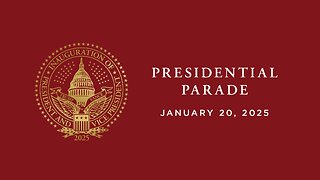Premium Only Content

2 Friends Chatting - The Insulin Scam!
Jeff Tells Of A Scam Happening Under Biden! If You Have Elderly Insulin Dependent Diabetics In Your Family............PLEASE WATCH
Thank You for watching. We are very new to this but would love to hear your comments/questions. Feel free to contact us at:
2friendschatting@gmail.com
Follow us on Truth Social
@wearytraveler)
Jeff (@patriotjeffs)
Telegram Channel
https://t.me/+5daqClrB6zg1OWQ5
Follow us on Locals (@2friendschatting)
Follow Jeff On Beer Buddy App
https://beerbuddy.app.link/jeff_1202
Our Rumble Channel
https://rumble.com/account/content?type=all
Videos from the stream to share
------------------------------------------
Videos Used In Broadcast:
USA Today Article On Insulin For Pumps
https://www.usatoday.com/story/money/2022/08/04/insulin-pump-cost-on-medicare/10202359002/?gnt-cfr=1
Full Article Below
Trump Drops Insulin To $35 And Biden Stops It!
https://t.me/c/1523984648/81
$300 more for the same insulin: The Medicare rule that makes pump users pay more

Katie Wedell
USA TODAY
A new diabetes drug is helping patweight, here's how much it could cost
A new diabetes drug may cause dramatic weight loss in patients. Here's when it could become available and how much it could cost. Just the FAQs, USA TODAY
Blair Brenner has been an insulin-dependent Type 1 diabetic for more than 40 years and hasn’t always had the disease under control.
She’s been hospitalized for diabetic complications and found that even if she ate healthy foods and exercised regularly, her numbers still were erratic.
It wasn’t until she got on an insulin pump with a continuous glucose monitor that she saw her condition stabilize and her A1C – an important measure of blood sugar levels – come down below 7%. The target of less than 7% is associated with a lower risk of diabetes-related complications, according to the Mayo Clinic.
“This worked phenomenally well bringing my numbers to an almost normal range, the best they'd been in over five years,” Brenner said of the insulin pump she’s used for more than two years. “For a chronically ill person, I was relatively healthy.”
This is why she was so surprised to learn, after turning 65 in 2020 and going on Medicare, that the federal government’s health plan for seniors charges more for the same vial of insulin if it’s used in a pump than if it was used via another injection method.
“It's the same number of vials of insulin that I need,” Brenner said. But she’s gone from paying $105 for a three-month supply to $415 for the same insulin.
That’s because a pump, a medical device, is billed under Medicare Part B, which typically covers things like doctor office visits and lab tests. But so is the insulin that goes into the pump, despite being a drug normally covered under Medicare Part D, a separate benefit plan that covers prescription drugs typically picked up at a pharmacy.
Brenner's challenges come as the federal government is testing a voluntary model under Medicare’s prescription drug program in which the co-payment for a month's supply of insulin is capped at $35 through participating plans. The model is set to expire on Dec. 31, 2025.
Get the Everyone's Talking newsletter in your inbox.
Get caught up with the trending news you need to know
Delivery: Mon - Fri
Your Email
But the voluntary cap, and proposals before Congress to make it a permanent mandate, only affect those who get insulin through their Part D prescription plan. Pump users like Brenner are ineligible.
Why are insulin pumps treated differently by Medicare?
Brenner, now 67, had heard about the $35 cap on insulin under Medicare, and her costs at the beginning of the year were in line with that.
"I and my consultant thought the insulin was at a consistent rate of $105 a quarter," she said.
But each quarter of her first year on Medicare, the cost increased and she went looking for answers.

Blair Brenner, a Type 1 insulin-dependent diabetic for more than 40 years, was shocked to find out her insulin costs more on Medicare because she uses a pump. Handout
"It was an unanticipated shock when it skyrocketed and I spoke to Humana at the time and they said that's just the way it is," she said. "Because the insulin was delivered via a pump, Medicare allowed them to charge me as if the insulin was a medical supply, not a prescription."
It seemed odd to her, but health insurance experts say the rule has been around since before Medicare had a separate drug benefit, now called Part D.
“Medicare A and B have been around for a long, long time, and, you know, supplies have always been that kind of B benefit,” said Benjamin Link, a pharmacist and vice president of pharmacy for Ohio-based drug analytics firm 3 Axis Advisors.
“You have this machine, this pump. It is clearly going to be a device, not a drug, so we're going to cover the device in Part B,” Link said. “But that device is useless if it's not loaded full of insulin.”
Breakthrough:A new diabetes drug is helping patients lose weight, here's how much it could cost
Even '2 cookies':Eating processed foods is hurting your brain, study says
Historically in Medicare, if something is used with a device, it’s a B benefit, not a D benefit, even if it is identical to the drug sold through a pharmacy, he said.
Patients who use various nebulized medicines may encounter the same kind of issue, Link said.
“If you don't get either in an advantage plan or choose a Medigap policy… chances are your usage of these products is going to be sufficient that you're going to pay a good deal of money,” he said.
But as technology advances, it’s unclear why some devices are labeled as such and some are not, Link said.
For example, Medicare considers diabetic pumps that have tubes to be under Part B benefits. But there are new devices like the Omnipod and V-Go – tubeless wearable pumps that deliver one to three days of insulin – which are not considered medical devices and are covered under Medicare Part D along with the insulin that goes in them.
Link said as a pharmacist, he wouldn’t recommend patients who are controlling their diabetes using a current method, like a pump or a pen, change devices just to save money on Medicare.
It’s unfortunate, he said, that someone like Brenner has to pay more for the device that is keeping her healthy, and therefore saving Medicare money, he said.
“But for this pump, she had uncontrolled diabetes, which is a risk to her life, but also at risk of hospitalization, which is ungodly expensive,” he said. “So if she gets sick because she can't afford her insulin, which is supposed to prevent her from going to the hospital, she's going to get a huge hospital bill. And that's going to negatively impact her ability to buy insulin to get better. It's this vicious downward cycle.”
A spokesperson for the Centers for Medicare and Medicaid Services did not answer why the rule is set up this way but confirmed that insulin for individuals using insulin infusion pumps falls under Medicare Part B’s Durable Medical Equipment benefit.
Patients pay 20% of the cost of that insulin after their deductible.
How to pick the right Medicare plan?
Link said very few people in the United States have the health care literacy necessary to effectively shop Medicare options.
“When you get your insurance through your employer most employers give you very limited options to buy insurance,” he said. “So in general, our experience isn't shopping health care plans, it's taking what is given to us.”
Brenner said she was always grateful that she remained employed as a speech and language pathologist and had good health insurance that covered most of her expenses.
But when people reach 65, they have to make a bunch of complex decisions they’ve never practiced making, Link said. And those with complicated conditions might not know about strange loopholes like the insulin pump rule.
“You are now arguably likely going to be sicker than you've ever been, and you have to decide. Are you taking traditional Medicare? Are you going to add on a Part D plan? Are you going to add on a Medigap plan?” Link said.
“And oh, by the way, in your area you have these you know X number of D plans to consider and these Y number of advantage plans to consider… the number of combinations that you potentially have to evaluate is hundreds.”
Deal reached:With window closing, Sen. Joe Manchin, Senate Leader Schumer reach deal on energy, drug prices, taxes
Brenner met with a Medicare consultant when she picked out her plan initially. She lives in the Chicago suburbs so they went over what plans and providers were available to her in Illinois. She chose a special Diabetic Medicare Advantage plan that she thought would meet her needs.
But the fact that insulin would be charged as a medical device supply instead of a drug wasn’t evident to her when she signed up.
It's not always clear who is funding Medicare consultants, Link said. If they work for a brokerage firm, they will likely only recommend plans that they have already bought.
The Centers for Medicare and Medicaid Services provides a list of brokers and agents and how much they are compensated to sell certain Medicare plans.
Link said people getting ready to pick a Medicare plan should do their homework like they are studying for a test.
“Study about the plan options in your area in advance, don't wait till you turn 65 and have to make a decision under more of a time crunch, he said.
People should develop a priority list of what's important whether that’s specific drug coverage or specific doctors so they can evaluate plans objectively.
$35 cap on insulin could be mandatory
Two companion bills in the House and Senate dubbed the Affordable Insulin Now Act would cap cost-sharing under Medicare Part D at $35 a month and for private health insurance at $35 or 25% of a plan’s negotiated price, whichever is less.
Rep. Lucy McBath, D-Ga. released a statement last week following reports that the House version she sponsored will be added to the Inflation Reduction Act. McBath’s bill is a companion measure to the one introduced by Sen. Raphael Warnock, D-Ga.
“This is a common sense, bipartisan piece of legislation that would significantly improve access and affordability for insulin users, many of whom have had to ration or skip doses for decades,” McBath said.
The measure previously passed the House. It has been endorsed by the American Diabetes Association.
However, because the bill only caps the price of insulin under Medicare Part D plans, this change would not affect patients like Brenner who have to buy their insulin under Medicare Part B because they use a pump.
In retirement, Brenner runs the Blare Foundation, which helps special needs families navigate services and become vocal advocates for their children. Her experience with insulin sticker shock under Medicare has made her become an advocate for diabetics as well.
Follow Katie Wedell on Twitter: @KatieWedell and Facebook: facebook.com/ByKatieWedell
-
 1:04:13
1:04:13
In The Litter Box w/ Jewels & Catturd
18 hours agoINAUGURATION DAY | In the Litter Box w/ Jewels & Catturd – Ep. 723 – 1/20/2025
28.3K14 -
 LIVE
LIVE
GOP
15 hours agoDonald J. Trump Attends the Presidential Parade
2,618 watching -
 3:20:22
3:20:22
Steven Crowder
7 hours agoCrowder Inauguration Day Live Stream 2025 | The Return of Donald Trump!
1.05M373 -
 LIVE
LIVE
Right Side Broadcasting Network
7 days ago🔴 LIVE: The Inauguration of Donald J. Trump as the 47th President of The United States 1/20/25
68,463 watching -
 LIVE
LIVE
Kimberly Guilfoyle
2 hours agoLive Inauguration Day Coverage
1,320 watching -
 3:54:12
3:54:12
vivafrei
6 hours agoTHE DON OF A NEW AMERICA! Trump Inauguration Live Stream! Viva Frei Live!
98.5K70 -
 3:42:54
3:42:54
The Quartering
1 day agoTrump Inauguration LIVE Broadcast & Commentary With DecoyVoice, Hannah Clare & Styxhexenhammer!
200K39 -
 6:25:30
6:25:30
LFA TV
1 day agoLIVE: INAUGURATION OF PRESIDENT DONALD J. TRUMP
291K78 -
 53:47
53:47
Russell Brand
6 hours agoInauguration Day Live! – SF522
185K89 -
 2:43:30
2:43:30
Donald Trump Jr.
7 hours agoFull Coverage of My Father’s Inauguration, America is Back. | TRIGGERED Ep.209
347K276